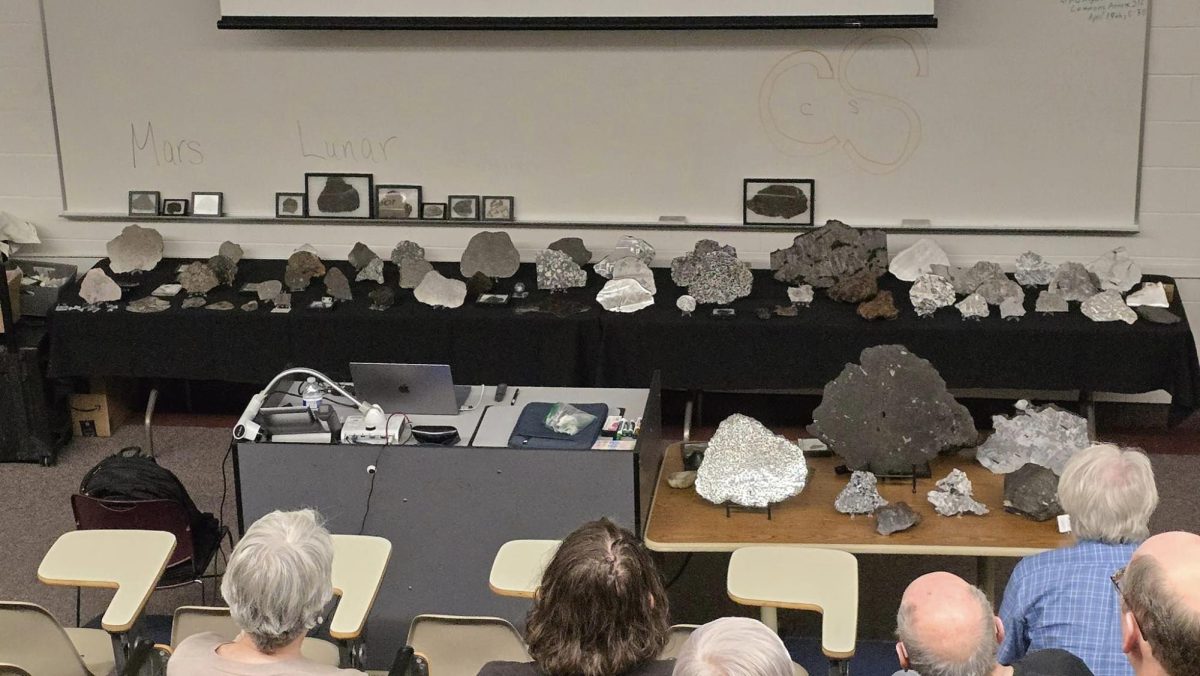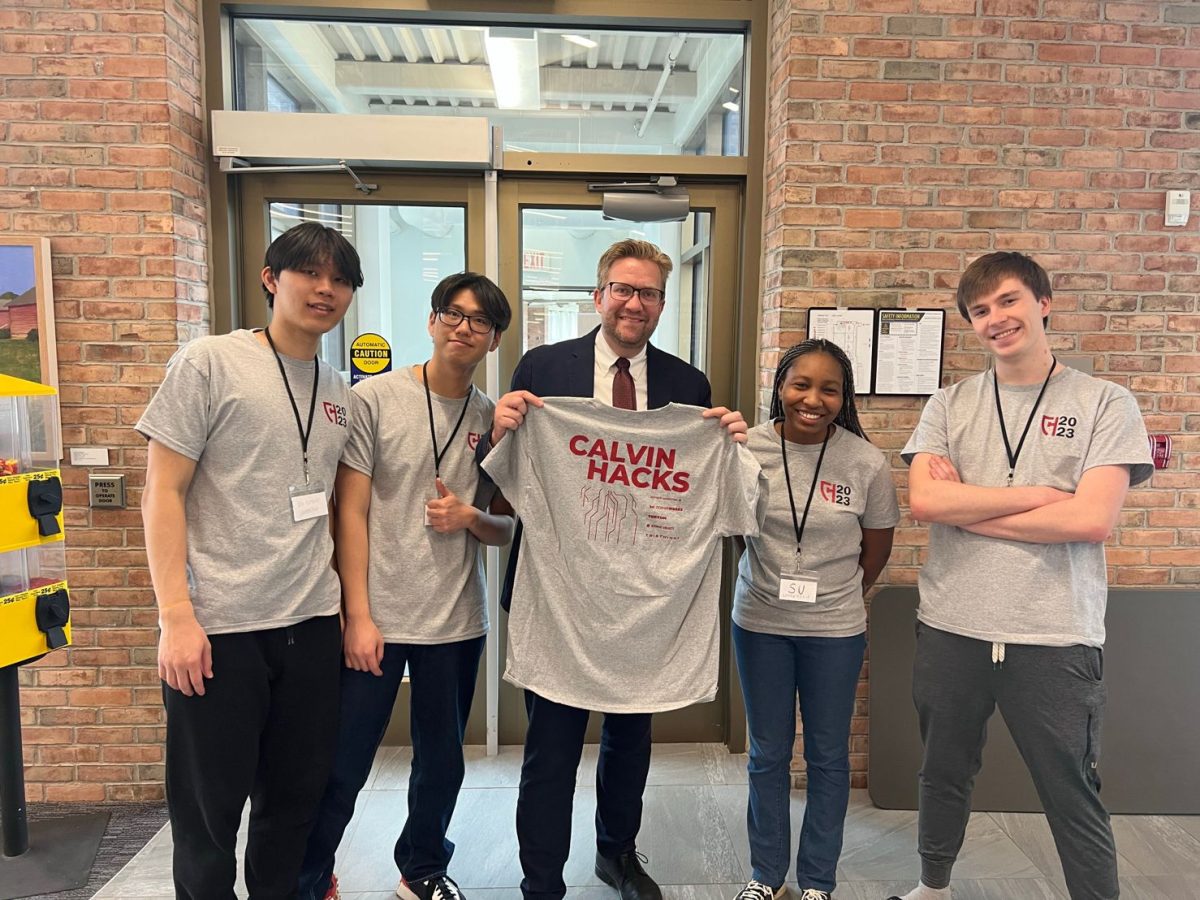Nathan Menkveld, a senior computer science major, had an idea to harness Calvin’s computing power to generate extra cash by mining cryptocurrency, which could be put towards a department scholarship, as computer science chair Joel Adams suggested, or used to replace equipment in the computer labs, as Menkveld originally hoped, but for reasons technological, political and economic, this idea never came to fruition.
Cryptocurrencies have ignited a firestorm of interest within the techie and anarcho-capitalist communities as of late. Bitcoin, the first and most popular cryptocurrency, has been joined by others, including Litecoin and Namecoin. These currencies use cryptography and peer-to-peer file-sharing technologies for pseudonymous, decentralized monetary transactions. They differ from typical currencies in that they are not backed by any central authority and make nearly anonymous transactions possible.
Cryptocurrencies like Bitcoin can be purchased, but they can also be “mined,” the term for the process of generating new coins. Anyone can run a program on his or her own computer that “mines” cryptocurrency by solving hard math problems in what is called a “proof-of-work” scheme. The hardness of the problem is automatically adjusted to control the rate at which new units of currency are released.
Menkveld’s initial mining experiment nearly melted his laptop. A clog in the heatsink meant that the heat generated by his graphics processing unit (GPU) couldn’t dissipate quickly enough. The GPU reached 103 degrees Celsius (217 degrees Fahrenheit), exceeding the boiling point of water. For reference, normal operating temperatures are between 75 and 85 degrees Celsius. The extreme heat left internal burn marks, but the damage was only cosmetic. Once Menkveld cleaned years of dust and dog hair from his laptop’s air vents, the GPU functioned normally and he was able to mine the equivalent of several dollars a day.
With these experiments behind him, Menkveld invested in a high-end GPU. He found that he was able to increase his revenues to $10 to $20 a day. In a short time, he broke even with the cost of the GPU. According to Menkveld, if he decided to sell the GPU, he would be ahead $400 on the deal.
While this looks like easy money, Menkveld began to discover flaws in the plan. Litecoin, the cryptocurrency he chose, had fallen in price. Menkveld chose Litecoin because it was newer than Bitcoin and hadn’t gained popularity yet, making it easier to mine. “We thought the low-hanging fruit was gone,” said Adams, referring to Bitcoin. He found that the window of profitability was a mere six weeks — by the time he concluded his mining experiment, it was no longer profitable.
Large scale benefit from mining cryptocurrency is highly time-sensitive due to their volatility. Cryptocurrencies tend to experience price bubbles and subsequent crashes as they increase in popularity.
The cryptocurrency exchange process is as volatile as the currency itself. Gary Draving, computer science department system administrator, also researched the problem. It seemed to him that as soon as he found one method for converting digital currency to USD, it would get shut down by a bot attack. “It was like the wild west,” quipped Draving. Mining cryptocurrency takes a lot more than just researching the technical aspects; according to Draving, it also takes a lot of research into banking and dealing with money.
The knowledge barrier wasn’t the only thing that held the project back. It encountered political trouble when it was presented before a committee. Some faculty members were very much opposed to the idea, Draving said. Cryptocurrencies like Bitcoin have gotten bad public relations due to their extra-governmental status and association with illicit activities. Bitcoin is pseudonymous and not connected to any government’s central bank, making it ideal for funding activities that governments or law enforcement agencies could easily shut down otherwise by tracking or cutting off financial transactions. You can use Bitcoin to donate to WikiLeaks or buy illicit drugs on the Silk Road marketplace.
Other issues include the administrative work needed to oversee mining, exchanging and allocation of generated funds. Menkveld also pointed out the risk of equipment damage that he discovered with his own machine. Mining uses a significant amount of electricity and generates a significant amount of heat, thus the project would incur a cost to the school and raise the stakes of profitability.
Menkveld remains optimistic that most of these challenges can be overcome. While he has personally chosen to move on, he stated that he would be “happy to share what he has learned” with any student interested in moving the project forward.






